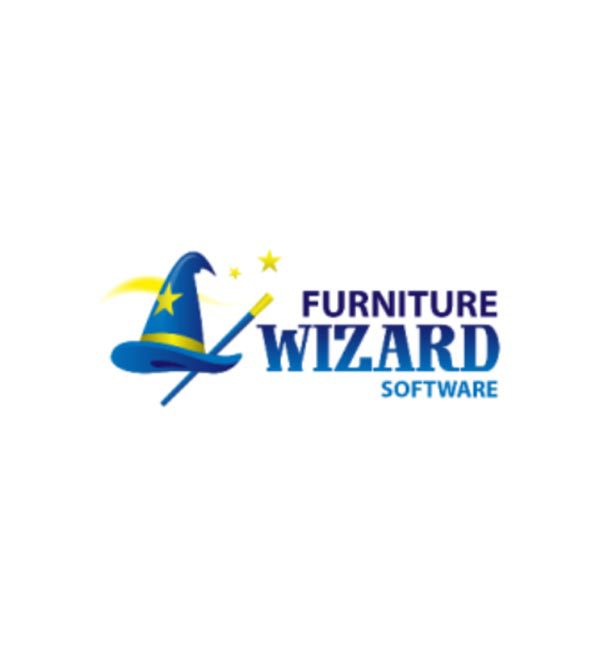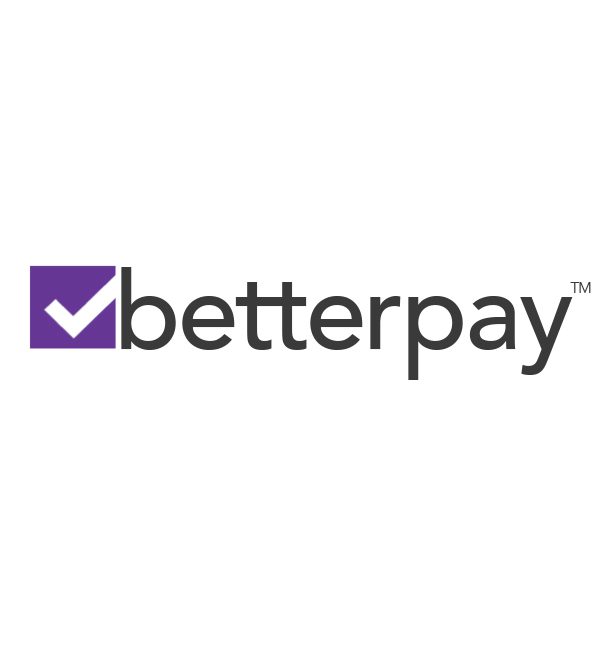Before anyone heard of the novel coronavirus that causes the disease now called COVID-19, Terri Johnson had a plan. Every business should, said Johnson, the director of occupational health and safety for WS Badcock Corp. in Mulberry, Fla.
“Obviously, we should plan for the worst and hope for the best,” said Johnson, a certified occupational health nurse who has worked for Home Furnishings Association member Badcock for 30 years. This virus, if it continues to spread, may become one of the greatest challenges she’s faced in that time.
The disease, which originated in China’s Hubei province, slowed manufacturing and transportation in that country, disrupting global supply chains. Last month, Fortune magazine contacted the HFA seeking the retail furniture perspective on the impact. Its article was titled, “As coronavirus spreads, even furniture sellers in the U.S. are starting to feel the impact.”
“We will run a little short on some products — but if it continues, after a while you are going to have to find products somewhere else,” Jesús Capó said. Capó, vice president and chief information officer for El Dorado Furniture in Miami, is HFA’s president.
“We have a buffer to deal with unforeseen circumstances, but if we continue to see delays, we may not have enough stock or have to source inside the country,” Jameson Dion told Fortune. He is vice president for global sourcing at City Furniture in Tamarac, Fla. “We anticipate a material impact on the business, we just don’t know how bad.”
There may be impacts at the store level
Potential impacts can present themselves in other ways, too. Although transmission of the virus within the U.S. has been limited outside a few areas, and the threat to the general population remains low, officials with the Centers for Disease Control and Infection predict a wider outbreak here.
“It’s pretty remarkable how fast the disease has spread and how much has happened since China first reported cases of a new disease at the end of December,” Dr. Nancy Messonnier, director of the National Center for Immunization and Respiratory Diseases at CDC, said Feb. 28. She was speaking to business representatives in a phone call arranged by the National Retail Federation.
The threat of community spread could lead to cancellations of large public events. The High Point Market Authority said it is monitoring developments but still plans to operate the spring market April 25-29. But that decision also could be made by North Carolina’s governor, Roy Cooper, who has the authority to call off events for public health reasons. It already appears that attendance will be lower, both because of international travel restrictions and worries within the U.S.
No intent to cancel High Point Market
Ford Porter, deputy communications director for Gov. Cooper, issued a statement Feb. 28: “The High Point furniture market has immense economic value for the region and the whole state. There’s no intention to cancel it. The governor’s coronavirus task force will continue focusing on prevention and preparedness, and we urge all North Carolinians to do the same.
“The Department of Health and Human Services and Emergency Management are closely monitoring coronavirus and working with North Carolinians to prevent and prepare for potential cases. In the case of any emergency, the decision to impact an event in North Carolina would be made in coordination with state health and public safety officials and local leaders. There is currently no reason to impact planned events in the state, and North Carolinians should continue to listen to DHHS and Emergency Management officials for updates and guidance.”

The Salone del Mobile furniture fair in Milan, Italy, postponed its April show until June, but “we’re not there yet in this country,” Dr. Lisa Koonin, founder of Health Preparedness Partners LLC, said on the Feb. 28 CDC call. “But I would say stay tuned, because postponing mass gatherings is a form of social distancing, and it could be a tool that public health officials would recommend if we see a large outbreak.”
Badcock’s Johnson can’t do anything about that, but she can take steps to protect her company’s employees and customers. Other retailers should consider similar measures.
The first is to provide good information. Customers already are asking whether they can be infected by contact with goods shipped from China, Johnson said. She prepared a memo for store managers stating there is no evidence that this virus has been transmitted from imported goods to people. That is a low risk, given the generally poor survivability of such viruses on various surfaces, especially when the products are in transit over a period of many days or weeks at ambient temperatures.
Because the most likely mode of transmission is through respiratory droplets and person-to-person contact, the memo advises store managers to follow the same preventative measures they would use to reduce exposure to the common cold or respiratory tract infections: handwashing, covering coughs and sneezes, wiping down counters and other surfaces and sending home employees who appear ill.
[EPA lists disinfectants that are effective against the coronavirus.]
Supervisors must monitor employees
The last point is very important, Johnson stressed. “Supervisors have to be vigilant and know what to look for,” she said. Symptoms are obvious: coughing, congestion, shortness of breath. Some 500 employees work at Badcock’s main office in Mulberry, and Johnson wants to see and evaluate any employee with those symptoms. Possible actions include sending them home or, if

warranted, to the local health department for testing. Employees should stay home if they don’t feel well. They are entitled to go home if they think their health is put at risk at work – and they can’t be penalized if they do, Johnson said.
Dealing with customers who exhibit symptoms is a difficult proposition. Dr. Koonin suggested posting signs asking people who are sick not to enter the store. But assurances must go both ways. “Be prepared to respond when customers become anxious or need information,” she said. “They need to know you are excluding sick employees from your workplace so they feel confident to come in.”
In addition, “Right now is a good time to think about alternative ways to deliver goods and services to customers,” Koonin said. “We live in an amazing time when not everything has to be done face-to-face. Think about ways to minimize close contact between employees and customers.”
That doesn’t mean those measures are needed now, but businesses should have plans for how they would operate in the face of a wider outbreak.
How would you deal with absenteeism?
“It’s important that you think about how to monitor and respond to high levels of absenteeism,” Koonin said. “We don’t know what will happen next, but there’s a possibility that a large number of people will become ill, even if most of them will be mildly ill. Then we could need to stay away from the workforce, and that could impact your operations.”
When employees do show symptoms consistent with COVID-19, “they need to stay out of the workplace,” Koonin said. “To do that, you need to make sure that your sick-leave policies are flexible and consistent with public health guidance. Now, not every business has a sick-leave policy for all of their workforce, so you might consider developing some emergency sick-leave policies in case you need to use them.”
[CDC Interim Guidance for Businesses and Employers]
At Badcock, Johnson has compiled a hierarchy of concern for employees based on their jobs or activities. On top are those who travel internationally. A trip to Vietnam was canceled a few weeks ago, she said.
Consult with local health officials
Next are drivers with long routes through the Southeastern states where Badcock operates hundreds of stores. Then auditors, repair staff and others who also travel to many stores. Local delivery drivers are a little lower on the list, although their work can be sensitive during an outbreak. The health of these employees will be monitored, and there are plans to get their work done if they become ill. Other contingencies include implementing staggered shifts and moving healthy employees from one location to another. Supplies of masks will be available if needed – truly protective N95 respirator masks rather than ineffective masks some vendors are selling, Johnson said. (However, health professionals stress there is no need for most people to wear masks at this time.)
Meanwhile, Johnson continues to monitor the latest developments and consult with local health officials – which is exactly the advice that CDC officials offer.
“The more we put our resources together, the better off we’ll be,” Johnson said.
National Retail Federation survey
Four in 10 respondents to an NRF survey released March 5 said their supply chains have been disrupted by effects of the coronavirus. Another 26 percent said they expect disruptions.
Most respondents indicated they have policies in place to deal with possible closures or long-term employee absences.
The supply chain problems identified by survey participants included delays in finished products and components, personnel shortages in factories, delays in container shipments and thin supplies of packaging made in China.
Some steps planned or taken by retailers to respond to supply-chain lapses included:
“We’ve granted extensions to factories and placed orders as early in advance to avoid any delays within our control.”
“Aggressively seeking new global sources for operations in Europe, Pacific region as well as Continental U.S.”
“Planning extra buying for items we don’t want to sell out of, and starting to consider delivery options if foot traffic drops.”

Political update
The Democratic presidential contest is beginning to consolidate and gain intrigue. Former Mayor Pete Buttigieg and Sen. Amy Klobuchar ended their campaigns and endorsed former Vice President Joe Biden on the eve of Super Tuesday.
Following his poor showing on Super Tuesday, former New York City Mayor Michael Bloomberg also quit and endorsed Biden. Next out was Sen. Elizabeth Warren, leaving a battle between Biden and Sanders.
Widespread concerns and fears about the coronavirus gripped the Trump administration and Congress as they worked together to pass an emergency funding measure to address the health crisis. The administration has been directly engaged with the business community to promote practices that keep employees and customers safe. This issue has caused short-term economic unrest in the U.S. and received the immediate attention of the White House.
CPSC nomination and furniture stability
President Trump has nominated Dr. Nancy Beck, an assistant administrator at the Environmental Protection Agency, to chair the Consumer Products Safety Commission. Beck has a background in the federal government and as a staff member for the American Chemistry Council. The furniture industry has worked with Beck previously on the formaldehyde emissions rulemaking at the EPA.
The issues related to furniture tip-overs have been highlighted in recent weeks with product warnings coming directly from CPSC about unstable clothing storage units. This is happening in the context of its ongoing rulemaking. We expect more information about that soon.
TSCA fees rule
On Jan. 27, the EPA identified formaldehyde as one of its 20 “high-priority” chemicals for risk evaluation under the Toxic Substances Control Act. This initiates a process for manufacturers and importers of the chemical to share part of the cost of the risk evaluation, which is $1.35 million. The fee is calculated on a per-capita basis determined by a list of companies that EPA will publish. Furniture manufacturers and retailers, in some cases, import formaldehyde as part of composite wood products. The initial list from the EPA did not include any furniture manufacturers or retailers, but the wording of the EPA rule would require those companies to self-identify through an EPA portal. The initial list contained about 525 unique companies or entries.
The EPA’s intent was to capture the companies that manufacture and import formaldehyde, but EPA is exploring options for relief to those industries perhaps unintentionally brought into this. The EPA has extended the public comment period until April 27. We will remain engaged to advise members of any possible next steps.
Trade
Implementation of a Phase One trade deal between the U.S. and China has moved forward despite delays stemming from the impacts of the coronavirus in China and the U.S. On Feb. 14, the Trump administration reduced the 15 percent tariff on List 4a imports from China to 7.5 percent. China has also rolled back several of its retaliatory tariffs.
Complicating implementation will be a potential delays by China to purchase U.S. goods and services, including agricultural products, in the face of the coronavirus outbreak. President Trump has been in contact with Chinese President Xi to alleviate any concerns and pledge to work together on the virus and trade matters.
The Office of U.S. Trade Representative has issued recent tariff exclusions impacting the furniture industry, including some chair/sofa components and cut/sew kits imported from China. These exclusions are retroactive and apply from Sept. 24, 2018, through Aug. 7, 2020.
Upholstered furniture flammability
The U.S. House passed the Safer Occupancy Furniture Flammability Act (SOFFA) in mid-December. Importantly, the version passed adopted the amendments made through Senate Commerce Committee consideration and approval. That leaves Senate floor consideration as the final hurdle for SOFFA becoming law. We are working with Senate staff to increase co-sponsors and drive support for inclusion in a legislative vehicle later in 2020.
ADA website accessibility
HFA member companies in Florida have been frequent targets of “demand letters” from serial plaintiffs alleging their websites do not comply with accessibility requirements under the Americans with Disabilities Act. The U.S. Department of Justice has refused to provide guidance or set federal standards, which leaves furniture retailers in a very difficult (and costly!) position – either settle the demand letter or fight the case in court.
This all-too-common story led Sen. Marco Rubio, chairman of the Senate Small Business Committee, and his staff to host a roundtable on this issue in Orlando last fall. HFA member Walker Furniture of Gainesville, Fla., shared its story and worked with other stakeholders to provide potential solutions to this growing problem.
Through these efforts, HFA has recently held discussions with the Small Business Administration to raise the profile of this issue within the Trump administration.



State reports
News of interest from Alaska, Arizona, California, Florida, Idaho, Maryland, Massachusetts, New York, Oregon, Pennsylvania, Tennessee, Washington and Wyoming.
Arizona
Every furniture retailer who makes sales across state lines knows how difficult it is to meet sales-tax obligations in multiple jurisdictions.
[Shifting sales-tax laws confuse many retailers]
The Arizona legislature feels their pain. Last month, it approved resolutions asking Congress to “enact uniform national legislation to simplify sales tax or similar tax collection to reduce the burden of tax compliance on remote sellers.”
While the sentiment is encouraging, Congress has shown little interest.
Alaska
Kodiak was poised to become the latest Alaska city to require out-of-state retailers to collect and remit sales taxes on purchases made by residents. The state doesn’t have a sales tax, but it allows local governments to collect the levy on purchases made within their jurisdictions. The Alaska Municipal League has established a commission to administer sales-tax collections.
California
The state attorney general issued a “regulatory update” last month regarding compliance with the California Consumer Privacy Act. Guidance includes a clarification that determining whether information is “personal information” under the law depends on whether the business maintains the information in a manner that “identifies, relates to, describes, is reasonably capable of being associated with, or could be reasonably linked, directly or indirectly, with a particular consumer or household.”
For example, Jackson Lewis Law writes in The National Law Review, “If a business collects the IP addresses of visitors to its website but does not link the IP address to any particular consumer or household, and could not reasonably link the IP address with a particular consumer or household, then the IP address would not be personal information. The proposed regulations provided businesses could not use personal information for ‘any purpose other than disclosed in the notice at collection.’ The update would establish a less strict standard – ‘a purpose materially different than disclosed in the notice at collection.’”
See more information from The National Law Review here.
Florida
Sen. Joe Gruters’ bill to require remote online vendors to collect tax on sales to Florida residents received a favorable reading in the Finance Committee last month. As time runs out in the current legislative session, however, it was still waiting for consideration in the Appropriation Committee. The measure is strongly supported by HFA members in Florida and by the Florida Retail Federation. It would create a more level playing field between online and brick-and-mortar retailers, who must charge their customers the state sales tax.
Also still pending are proposals to require public and private employers to participate in the federal E-Verify program, meant to certify that undocumented immigrants are not on payrolls. A Senate bill would apply to private companies with at least 50 employees, The Associated Press reports, while a House bill would exempt private employers. Business and agricultural organizations have expressed concerns about the Senate version.
Idaho
A bill approved by the state House in late February would bar local governments from raising property tax rates. Proponents say the measure is needed to provide relief to taxpayers, while local governments contend it will hinder their ability to provide services.
Maryland
A state Senate bill would impose a tax on annual gross revenues derived from digital advertising services. It would be the first such tax in the country. The Maryland Chamber of Commerce strongly objects: “Of greatest concern to the Chamber is that the economic burden of SB 2 will ultimately be borne by Maryland businesses and consumers of advertising services within a digital interface — including websites and applications,” it said in an Action Alert. “As a result of this tax, advertising service providers will pass the increased costs on to their customers. This includes local Maryland businesses that utilize online platforms to reach new customers. Although the intended targets of this tax are large global corporations, Marylanders will feel it the most in the form of higher prices and lower revenues.”
A second bill of concern, H.B. 1628, would lower the state’s sales-tax rate from 6 percent to 5 percent but expand the tax to services – resulting in an overall tax increase of $2.6 billion, according to the Maryland Chamber. Services subject to the new tax would include delivery, installation, finance charges, credit reporting and any professional services.
Proponents say it’s the best way to pay for public education, but Gov. Larry Hogan has vowed, “It’s not ever going to happen while I’m governor.”
Maryland’s Criminal Records Screening Practices Act took effect Feb. 29. It bars companies with 15 or more employees from asking about a job applicant’s criminal history before an initial in-person interview. The employer may ask during or after the interview.
Massachusetts
Proposed tax increases could affect furniture retailers. Among those pushed by leaders in the state House are hikes in gasoline and diesel levies and higher minimum corporate taxes on businesses with annual sales greater than $1 million. Additional revenue would pay for improvements to the state’s transportation system. The gasoline tax would rise from 24 cents per gallon to 29 cents under the proposal. On diesel, the tax would jump from 24 cents to 33 cents.
New York
Gov. Andrew Cuomo is taking a tour of states where recreational marijuana use is legal to find the best model for New York. Destinations include Massachusetts, Illinois and either Colorado or California. He has promised that enabling legislation will be enacted this year.
Oregon
Republican state senators boycotted a floor session to deny a quorum and prevent a vote on a cap-and-trade bill, KGW8 reported. “Democrats refused to work with Republicans and denied every amendment that was presented,” they said in a statement. “Pay attention, Oregon – this is a true example of partisan politics.”
Democratic Gov. Kate Brown called the action “a sad moment for Oregon,” noting it would prevent the passage of a flood-relief bill and other legislation.
The bill would require major polluters to purchase “carbon credits,” which could result in higher prices for utilities.
Legislative Democrats issued subpoenas to compel Republicans to return, but whether lawmakers are bound by subpoenas is disputed.
Pennsylvania
A data breach bill introduced last year received a hearing in the House Commerce Committee in late February. It is opposed by the Pennsylvania Retailers’ Association because it places a higher burden of responsibility on retail businesses than on banks or other entities that handle consumer information.
Tennessee
The combined state and local sales-tax rate in Tennessee is 9.53 percent, highest in the country, according to the Tax Foundation. But Louisiana is right behind at 9.52 percent. Arkansas is third-highest at 9.47 percent. Four states have no state or local sales taxes: Delaware, Montana, New Hampshire and Oregon.
Washington
Oregon doesn’t have a sales tax, and until last year Washington state did not require its retailers to charge sales tax to Oregon residents shopping in Washington stores. Now it does, and some observers say the change is keeping many Oregon customers from crossing the state line.
“Bill Marcus, CEO of the Kelso Longview Chamber of Commerce, was opposed to the law change last year,” KATU News reports. “He feared it would be bad for business on the border. Those fears, he says, are being realized.
“’I talked to a couple businesses, and they told me they are between 40 and 60 percent down in their Oregon business,’ Marcum said. The retailers being hit the hardest, he added, sell big-ticket items like furniture, sporting goods and jewelry.”
Paid Family and Medical Leave has taken effect in Washington state. It applies to all employers, and people who are self-employed may opt in. To be eligible, employees must have worked at least 820 hours in four of the five quarters prior to applying for paid leave.
The program is funded through premiums from employees and employers. However, contributions from businesses with fewer than 50 employees are voluntary. For larger businesses, employers are responsible for one-third of the premiums due – or they can choose to pay a greater share as a benefit for their employees. For details, consult the state’s Paid Leave web page here.
Wyoming
The proposed National Corporate Tax Recapture Act has been put to rest for 2020. The measure would have imposed Wyoming’s 7 percent corporate income tax on corporations with more than 100 shareholders operating in the state, even if they were based in another state.
Opponents viewed the initiative as detrimental to Wyoming’s business climate.
“Contrary to what is often being said, the corporate tax you are looking at is not a simple transfer of revenue from one state to another,” Sven Larson, a senior fellow at the Wyoming Liberty Group, wrote to a legislative committee. “It is a real increase in the tax burden on corporations. For example, home improvement retail giant Lowe’s, domiciled in North Carolina where the corporate income tax is 2.5 percent, would be looking at a substantial increase in the cost of operations in our state.”












